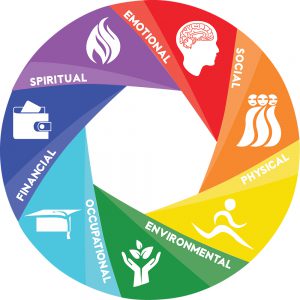What is Wellness?
By Gloria Jones
 As “Wellness” is actually the theme of this month’s lifestyle magazine we thought we would ask a little more about what the word actually means. After all a few years ago it was hardly in common usage, yet now there is a ‘Global Wellness Day”, a tourism industry that thrives on the promotion of “Wellness” and even a “Global Wellness Summit” taking place in Singapore next month.
As “Wellness” is actually the theme of this month’s lifestyle magazine we thought we would ask a little more about what the word actually means. After all a few years ago it was hardly in common usage, yet now there is a ‘Global Wellness Day”, a tourism industry that thrives on the promotion of “Wellness” and even a “Global Wellness Summit” taking place in Singapore next month.
So, according to The World Health Organization.“Wellness is a state of complete physical, mental, and social well-being, and not merely the absence of disease or infirmity.” It is more than just the choice of a healthy lifestyle and being free from illness. Searching for the pot of gold exemplified by a state of health, happiness, and prosperity, Wellness is the conscious development of the whole self.Which means battling against all too common ailments of insomnia, stress, poor nutrition, physical inactivity, obesity and the most common health problem in the world, depression.
Embarking on a wellness journey involves searching for the appropriate means to aid continued growth and development and keep our life in balance. In order to achieve our balance in life apparently we should be balancing our “wellness wheel”
The Wellness Wheel illustrates a model with 7 parts: emotional, intellectual, physical, social, environmental, financial, and spiritual. In order to achieve a balanced lifestyle
Emotional wellness is the ability to manage stress, express emotions,be in touch with your feelings and develop confidence. Learning relaxation and stress management techniques can help.
Intellectual wellness involves expanding your knowledge and engaging in creative and mentally-stimulating activities. Academic and skill based learning are the keys to improvement here
expanding your knowledge and engaging in creative and mentally-stimulating activities. Academic and skill based learning are the keys to improvement here
Physical wellness can be helped by eating healthy foods, exercising regularly and getting enough sleep. Limit use of alcohol and drugs avoid tobacco and only take medicine as prescribed
Social wellness refers to the quality of the relationships you have and how you interact with others.Making friends and interacting with as diverse a group of people as possible is beneficial, join teams or different social groups.
Environmental wellness involves interaction between your environment and community. You should engage in environmentally friendly behavior: recycling, refusing plastics whenever possible and conserving energy.
Financial wellness is managing your budget and expenses. Living with financial means by planning for both the short and long-term. To be better prepared to handle loans,taxes, debts and retirement.
Spiritual wellness may not just refer to religious beliefs but having values that provide a sense of meaning and purpose in life, connecting with something bigger than yourself.
